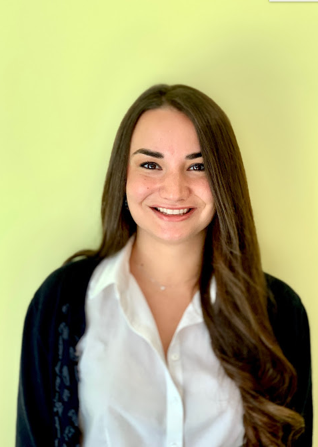American Psychological Association Division 50

ECP Student Spotlight
This year, SoAP Student Representative Julie Cristello organized a new CPA panel focused on professional development for trainees. Given the health crisis, the panel was adapted to a written format and disseminated via Twitter during the virtual poster session and on the SoAP website. Here, I have adapted my contributions futher for the SoAP Box in hopes of reaching a broader student audience. These questions were solicited from trainees, so hopefully our junior members and affiliates will find these topics useful as they navigate the labyrinth that is doctoral training. I am a clinical psychology PhD candidate about to embark on my sixth and final year of training as a clinical intern.
How challenging is it for grad students to manage multiple responsibilities?
This is the most challenging aspect of graduate school. I am still figuring this out myself, but here are some strategies I have found helpful. First, prioritize. Bogged down in classwork? Set limits and force yourself to complete classwork faster; work smart, not hard. Clinical work not your jam? Look for practica with lower hour demands. Discovering research isn’t for you after all? Turn down extra projects. Second, configure a block schedule that minimizes role-switching and travel. Your ability to do this may vary by semester, but it can be a huge time-saver. Third, communicate early and often with mentors and supervisors to manage their expectations. Grad school will teach you to become your own best advocate. Fourth, stimulus control—it really works! Try designating distinct work environments for different tasks. Last, set reasonable boundaries to make time for fun, and only fun!
What are tips for staying motivated in a challenging work environment?
The best way to deal with an adverse environment is to avoid it in the first place. I am very thankful to have been “raised” academically in a series of supportive, motivating environments. Luck has no doubt played a role, but I do take some credit for the connections I have chosen to make, maintain, and prune throughout my academic career. It may be easier to let your mentor lead the way, but it is in your best interest to surround yourself with people who will foster your success. This includes formal and informal mentors, colleagues, and friends. Nurture supportive connections and withdraw gracefully from obstructive or destructive relationships. Also, try to maintain close relationships with people outside of the academic world. You will find that these “outsiders” can provide support in different, refreshing ways.
How would you recommend obtaining resources that your program might not offer?
The key here is to be creative. Think back to your undergraduate days, when you were bombarded with opportunities to learn outside of your major. These opportunities exist for graduate students as well, but they are often not well-advertised; or, we are too quick to delete those annoying emails. Some practical advice: read those annoying emails; look into courses outside of your department; sign up for announcements from your graduate student council to hear about free programming across other disciplines; go to conferences where you can meet researchers with access to data you want to work with—CPA is great for this; if there is a common need for additional training, work with your program director to add it to your curriculum.
Given that most clinical internship sites offer training with SUD populations, what are tips for cutting down the list of potential sites to apply to?
SoAP’s list of “Addiction Psychology Opportunities in APA-Accredited Predoctoral Internship Programs” is an excellent resource. Talking to others in the field, both peers and superiors, can give you a good sense of where to narrow your focus. It is also helpful to look through program “brochures.” Though time consuming, this gives the best indication of a program’s training philosophy (do they value research training?), specific training opportunities (full or partial SUD rotations?), and general strengths/weaknesses.
How do you balance feasibility and innovation when developing a dissertation topic?
This depends on whether you lie more on the “overly-ambitious” or the “get me out of here” side of the spectrum. For the former, it could be helpful to have an unfettered discussion with your advisor and scale back from there. Trust when your mentor says something is not feasible! For the latter, remember that there is no quick-and-dirty way to complete a dissertation. You will be spending a lot of time on this project no matter what, so it is worth a small investment of your time to design a project that interests you. In general, making use of existing data is a good strategy.

Resources are available for those struggling with addiction and numerous effective treatments exist. Whether you are looking for help for yourself or a loved one, we encourage you to seek out help.